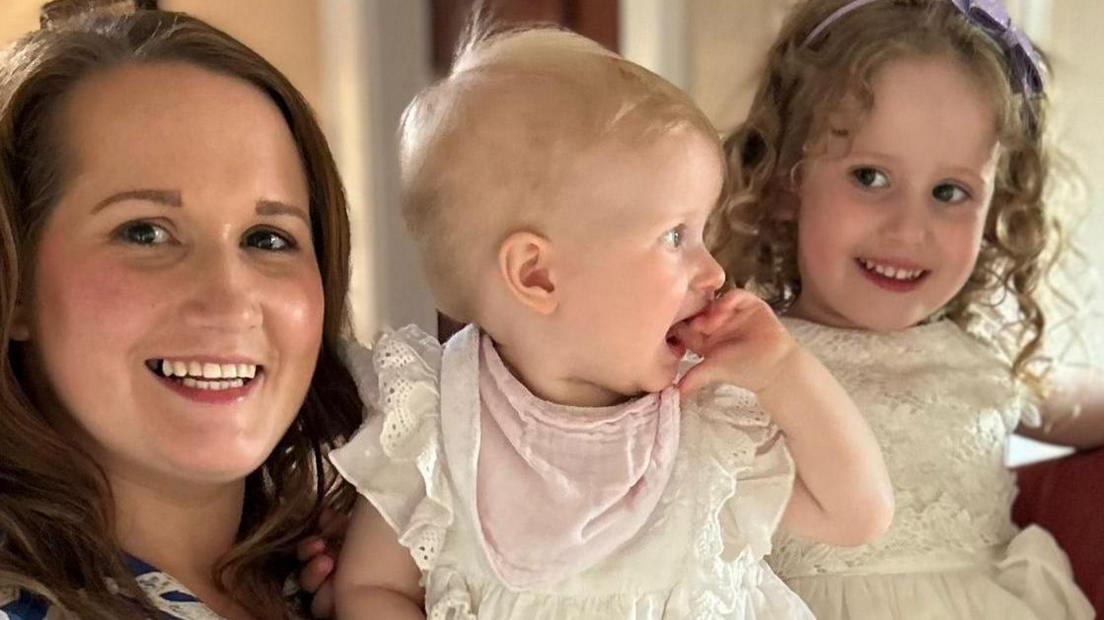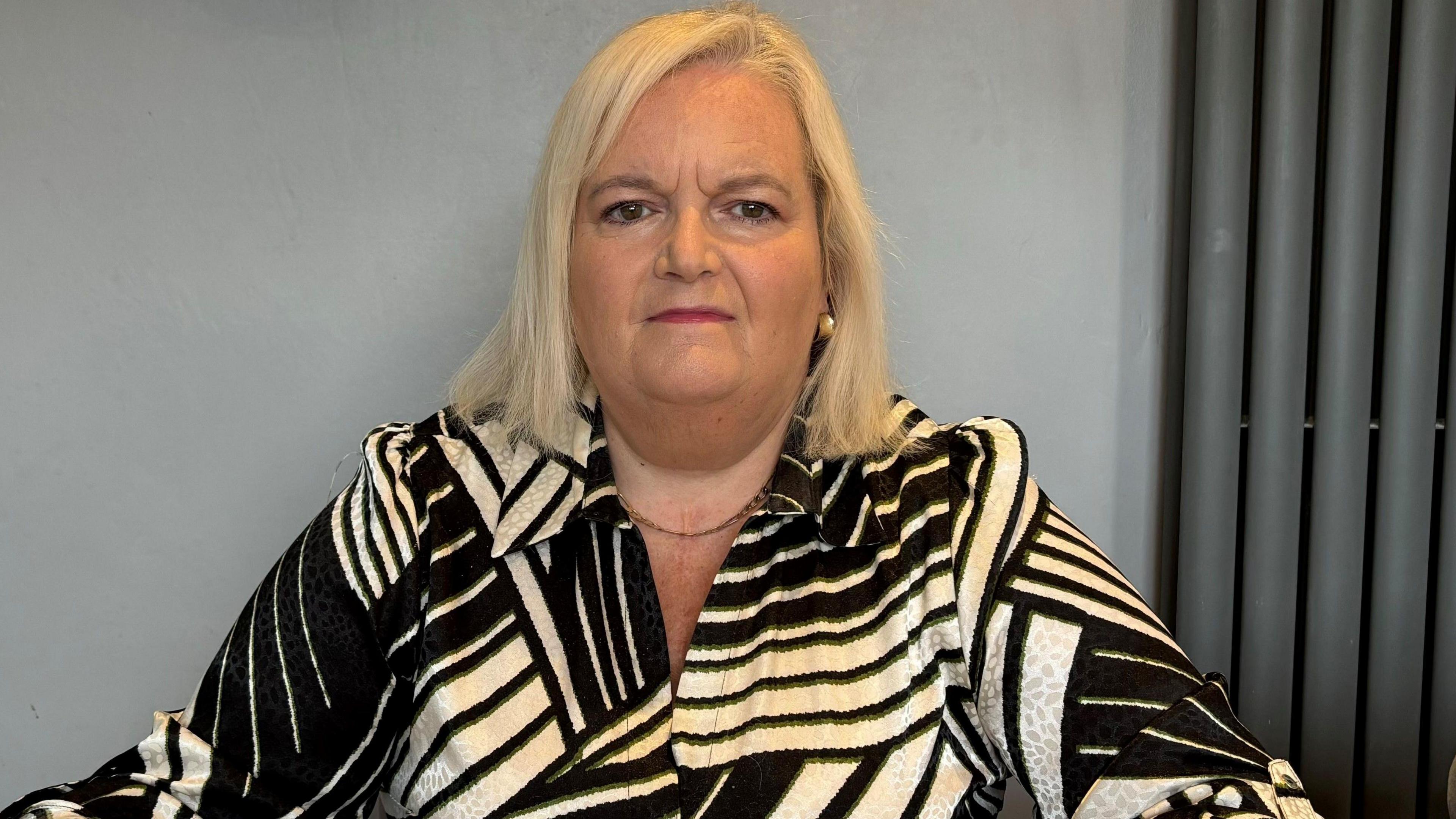New childcare subsidy cash 'easing the pressure'

Kim Gawley said the subsidy was a "great start" for parents
- Published
About 12,000 children in Northern Ireland have been registered for a new subsidy scheme to help with the cost of childcare.
The Northern Ireland Childcare Subsidy Scheme came into force in September and offers financial relief to households with children under primary school age.
Part of the package includes a 15% childcare subsidy on top of the 20% granted by the UK government, both of which are capped.
One parent, who registered her child, told BBC News NI that two days of childcare amounts to almost half her monthly wages.
Kim Gawley from Ballymena has two children.
She returned to work full time in May and said the subsidy is a "great start" to supporting working parents.
“I didn’t think this scheme would ease the pressure as much as it has, but we are saving £25 a week on childcare now."

Fiona Taggart said the financial support has been "a big relief"
Fiona Taggart from Saintfield said the financial support has been "a big relief".
“Especially happening throughout the winter months – with fuel and costs still so high – the extra money is a huge burden taken off for families," she added.
What is the Northern Ireland Childcare Subsidy Scheme?
The Northern Ireland Childcare Subsidy Scheme came into force in September and offers financial relief to households with children under primary school age.
Part of the package includes a 15% childcare subsidy on top of the 20% granted by the UK government, both of which are capped.
The subsidy scheme is provided through registered childcare providers - with discounts passed on to parents.
Figures from the Department of Education show that the majority of children registered for the scheme live in Lagan Valley, with more than 1,100 registrations.
In south Belfast there were about 900 registrations.
The lowest uptake so far is in west Belfast, with just over 200.
'A step in the right direction'
Patricia Lewsley-Mooney, CEO of the Northern Ireland Childminding Association, said despite some issues with the set up and administrative costs, almost half of providers had signed up to facilitate the scheme.
She said the payments were a step in the right direction, but more needs to be done to support the childcare sector.
“Childcare providers are saying they are delighted that we are able to help parents, but they are also asking where the support is for registered childminders. How do we ensure we don’t lose any more from the sector?"

Ms Lewsley-Mooney said more than 50% of providers had left the sector in the past 20 years
Ms Lewsley-Mooney said rising costs and limited budgetary support have led to the sector losing more than 50% of providers in the past 20 years.
“Our registered childminders told the education minister that the biggest issue for them is fuel and food and their insurances,” said Ms Lewsley-Mooney.
“They can't pass that cost to parents when parents are already finding it difficult to find the money for childcare in the first place.”
The executive set aside £25m for childcare in the budget - about 6% of the estimated need.
When announcing the scheme in May, Education Minister Paul Givan promoted the funding's potential to have a "lasting impact".
Ms Taggart said despite the scheme being a "quick way" to help parents in need, not knowing whether this is a long-term solution is a problem.
“The fear with parents is how long this will be lasting, so we can plan forward."
In a statement to BBC News NI, the Department of Education said: "Any decisions regarding the scheme, including an extension after March 2025, will be considered as part of the scheme’s ongoing evaluation.
"Ultimately, it will be for the Executive to decide if it wishes to allocate the funding required to continue the scheme next year – either as it is or in an expanded capacity."
Related topics
- Published23 May 2024

- Published12 February 2024
